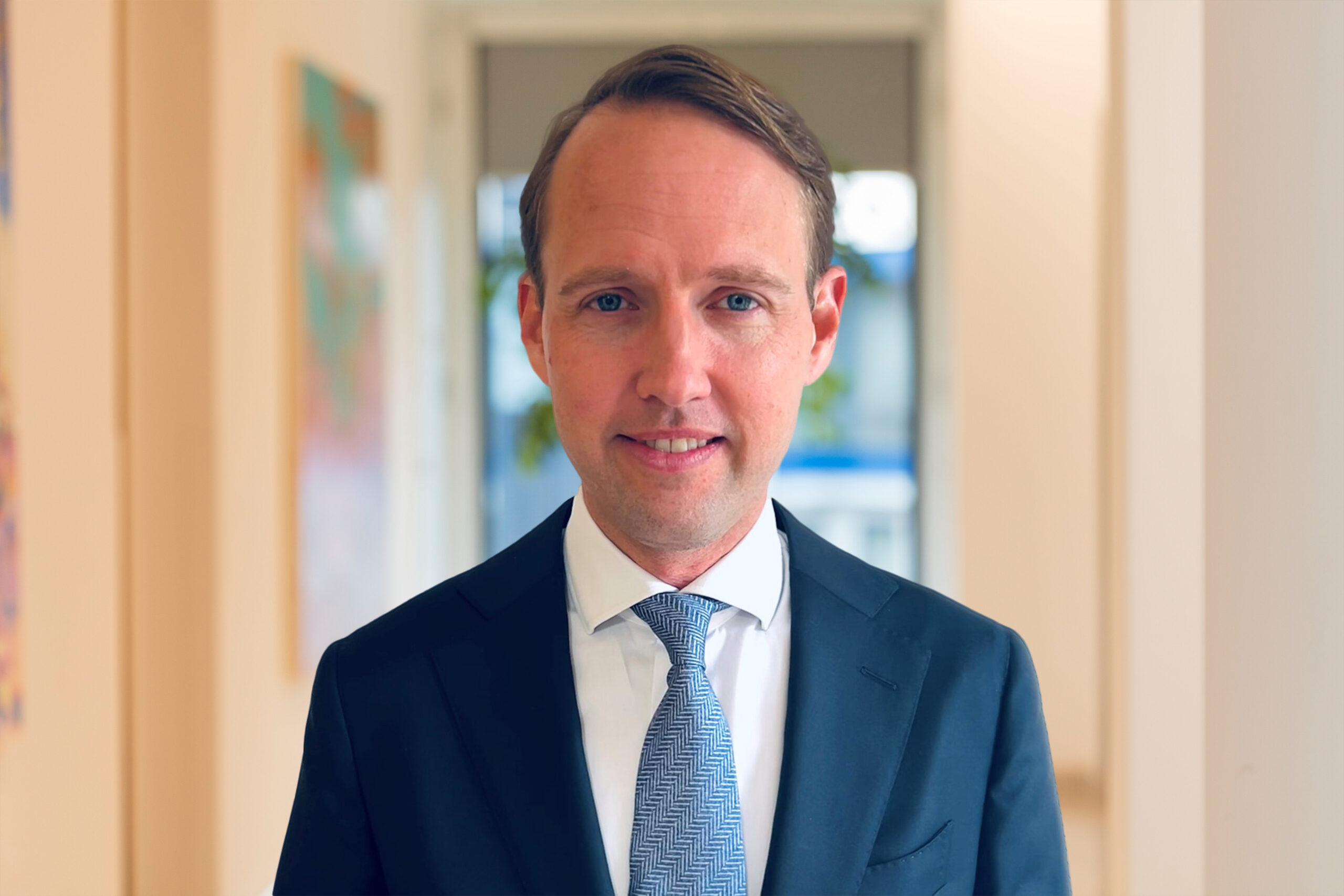Now Reading: In Conversation with Tushar Gulati, Vice President – Strategy & Business Development at Aumirah
-
01
In Conversation with Tushar Gulati, Vice President – Strategy & Business Development at Aumirah

In Conversation with Tushar Gulati, Vice President – Strategy & Business Development at Aumirah
Legal DesireInterviews1 year ago865 ViewsShort URL
- Home
- Interviews
- In Conversation with Tushar Gulati, Vice President – Strategy & Business Development at Aumirah
Tushar Gulati is the Vice President – Strategy & Business Development at Aumirah. With over 15 years of experience, he specializes in Marketing, Strategic Partnerships, Business Development, and Operations. He has been instrumental in driving corporate growth and establishing strategic alliances for Aumirah, focusing on innovation, client engagement, and expanding the firm’s presence across global markets. His expertise spans across sectors like corporate law, technology, and emerging areas such as Web3 and digital assets. Tushar’s in-depth understanding of complex legal landscapes and business strategy makes him a key leader in fostering Aumirah’s expansion and growth initiatives. Read here exclusive conversation with him about his journey, expertise and experiences:
Q: You’ve had over 15 years of experience in strategy and business development. Can you tell us about your career journey and how you ended up at Aumirah?
I’ve been on quite a journey over the past 15 years, navigating various industries and wearing different hats, each one adding a unique layer to my professional experience. It all started when I co-founded Netshiksha.com, where I got hands-on experience in understanding markets, operational efficiency, and strategic planning. I was thrown into the deep end, but that’s where I learned to swim, identifying growth opportunities and developing solutions to complex business problems.
After Netshiksha, I took on roles that allowed me to lead diverse teams, drive strategic initiatives, and foster meaningful partnerships. These experiences broadened my perspective, making me realize the importance of sustainable business models and innovation as catalysts for long-term success.
I joined Aumirah because it felt like a natural progression. My passion for strategy and business development aligned perfectly with the company’s mission to drive growth in competitive markets. I saw an opportunity to contribute my experience in a meaningful way, especially in navigating the ever-evolving business landscapes and seizing new opportunities. Being at Aumirah allows me to leverage my background to create tangible value for the firm and its clients.
Q: What are some of the key responsibilities in your role at Aumirah, and how do you ensure alignment with the firm’s long-term goals?
As the Vice President of Corporate Law & Business Development at Aumirah, my role goes beyond just ticking off daily tasks. I’m deeply involved in shaping the company’s strategic direction and steering it toward long-term success. This means I wear multiple hats, identifying and pursuing new business opportunities, nurturing critical partnerships, and spearheading market expansion initiatives.
I work closely with all teams to develop strategic initiatives that are not only aligned with our financial objectives but also with our vision for sustainable growth. This involves assessing market trends, competitive landscapes, and emerging opportunities that could position Aumirah ahead in the industry.
To maintain alignment with our long-term goals, I emphasize open communication and continuous collaboration across departments. Moreover, I continually monitor performance metrics, both qualitative and quantitative, to assess progress and make adjustments where necessary. This way, we can be proactive in adapting strategies to maintain a competitive edge while staying true to our long-term objectives
Q: With over 15 years of experience in business development, how has the corporate law landscape evolved?
With over 15 years in business development, I’ve seen a lot of changes in corporate law. One big shift is the way companies now operate globally. As businesses expand across countries, they face different rules and regulations, making it important to follow international laws, like GDPR for data protection.
Another key change is the focus on Environmental, Social, and Governance (ESG) factors and Corporate Social Responsibility (CSR). Companies aren’t just focused on making profits anymore, they’re also expected to be socially responsible, which adds new legal and ethical challenges.
Technology has also played a huge role in changing corporate law. The rise of digital platforms, AI, and the need for data privacy and cybersecurity have transformed how businesses work and how legal processes are handled. Laws in these areas are always changing, so companies need to stay flexible.
In short, corporate law has become more global, tech-focused, and concerned with sustainability. For business development, this means adapting strategies to keep up with these changes and spotting new opportunities as they arise.
Q: Corporate governance plays a critical role in business success. What are the key corporate governance issues faced by businesses today, especially those in the technology sector?
In today’s fast-changing business world, corporate governance is really important, especially for tech companies. It’s not just about following the rules anymore; it’s about handling big challenges. Some of the key issues businesses face today are:
- Data Privacy and Security: Protecting customer data and staying safe from cyber threats.
- Regulatory Compliance and Antitrust Issues: Making sure the company follows laws and avoids monopolistic practices.
- Ethical Use of AI and Emerging Technologies: Using new technology like AI in a way that’s fair and responsible.
- Intellectual Property Protection: Safeguarding a company’s ideas, patents, and innovations.
- Sustainability and ESG (Environmental, Social, and Governance): Being environmentally and socially responsible.
Balancing all these things is essential for keeping a company’s reputation strong and ensuring long-term success.
Q: What are the unique IP challenges faced by Web3 companies, especially when it comes to digital assets, smart contracts, and decentralized applications?
Web3 companies face a unique set of challenges when it comes to intellectual property (IP), largely because of the decentralized nature of blockchain technology.
One of the biggest challenges is ownership of digital assets, like NFTs. While NFTs can show ownership of a digital item, it doesn’t always mean the owner has the rights to use or reproduce the content. This can create confusion and disputes about how the asset can be used commercially.
Smart contracts, which are automatic agreements on the blockchain, add complexity to licensing. Since they are coded to follow certain rules, any mistakes in the code can cause problems or make it hard to enforce the terms of the agreement.
Decentralized applications (dApps) often use open-source software with specific licenses. Companies need to be careful to follow these licenses, or they might lose their rights or face legal issues.
Protecting trademarks is also tough in a decentralized system. For example, unauthorized use of logos or fake NFTs can happen across different regions, and it’s hard to control and enforce IP rights globally.
Because blockchain works without borders, it’s tricky to enforce IP rights across different countries with their own laws. It’s hard to pinpoint where a violation happens, which adds to the difficulty.
These challenges show the tension between traditional IP laws and the decentralized world of Web3. As the space evolves, companies will need creative ways to protect their IP while dealing with these uncertainties.
Q: How do you differentiate between the legal requirements for Centralised vs Decentralised exchanges when structuring token offerings?
CEXs (Centralised exchanges) are highly regulated and need to follow strict rules, like registering as money transmitters and complying with securities laws. They must also implement Know Your Customer (KYC) and Anti-Money Laundering (AML) measures to ensure safe trading. Tokens listed on CEXs are carefully reviewed to determine if they are considered securities, and if they are, the issuer has to meet strict requirements like filing detailed documents. CEXs are also responsible for protecting investors by providing clear information about risks, fees, and trading conditions, and they have systems in place for handling disputes and fraud.
On the other hand, DEXs (Decentralised exchanges) operate without a central authority and don’t follow the same strict regulations as CEXs. They usually don’t require KYC checks, which makes them more accessible, but this also creates legal grey areas and increases the risk of non-compliance with regulations. Issuers find it easier to launch tokens on DEXs since there are fewer regulatory hurdles, but the lack of clear rules can lead to legal issues in the future. Additionally, DEXs don’t have the same reporting obligations, so traders are responsible for tracking their own transactions and handling tax requirements, which can be challenging for both issuers and investors.
In a nutshell, CEXs are more regulated and secure, while DEXs offer more flexibility but come with higher legal risks.
Q: How does Aumirah approach arbitration and dispute resolution for blockchain companies?
Dispute resolution in the blockchain space is still a relatively uncharted territory. At Aumirah, we’ve developed a comprehensive strategy that combines the strengths of traditional arbitration with the unique capabilities of blockchain technology. Our approach is designed to provide clear, efficient, and enforceable solutions, even in this rapidly evolving landscape.
- As Smart contracts are at the heart of many blockchain projects. We encourage clients to use smart contracts for automating the execution of agreements. By setting clear terms and conditions within these contracts—such as outlining dispute resolution procedures, timelines, and roles for mediators or arbitrators—we can minimize misunderstandings and ensure all parties are on the same page from the get-go.
- We’re also exploring decentralized arbitration platforms. These systems, which operate without a central authority, leverage blockchain’s transparency and immutability. This means everyone has access to the same information, ensuring a fair process. Additionally, we advocate for community-based resolution models, where peer juries or panels drawn from the platform’s user base help resolve disputes. This fosters trust and a sense of shared ownership in the process.
- Enforcing arbitration awards across jurisdictions can be tricky, especially when disputes arise in the borderless digital space of blockchain. We assist clients in navigating these complexities, ensuring that smart contract disputes can be resolved effectively, no matter where the parties are located.
Aumirah’s holistic approach combines cutting-edge technology with time-tested legal principles. By emphasizing clarity in contract terms and leveraging the power of smart contracts, we create dispute resolution mechanisms tailored to the unique needs of blockchain companies.
Q: How do you see the role of corporate lawyers evolving as Web3 technologies become more mainstream?
As Web3 technologies become more mainstream, the role of corporate lawyers will change a lot. Lawyers won’t just focus on legal matters anymore—they’ll need to understand technology, strategy, and compliance. Here’s how I see their role evolving:
- With new laws around blockchain and decentralized finance (DeFi), corporate lawyers will help companies follow these regulations and manage legal risks.
- Lawyers will need to know how to work with smart contracts, which are legal agreements written in code. They’ll learn to write and understand these contracts to make sure everything is legally sound.
- As digital assets like NFTs grow, lawyers will handle new intellectual property issues, such as who owns what, how things can be licensed, and managing rights in a decentralized world.
- Since Web3 involves handling large amounts of data, lawyers will ensure companies follow data protection laws and keep user information safe.
- Decentralized Autonomous Organizations (DAOs) are a new way to manage businesses, and lawyers will advise on how to run these organizations while staying within the law.
- As more deals happen on decentralized platforms, lawyers will create new ways to resolve disputes, using both traditional legal methods and the power of smart contracts.
In the Web3 world, corporate lawyers will be key in connecting decentralized technology with existing legal systems, and they’ll need to stay ahead as the space evolves quickly.










